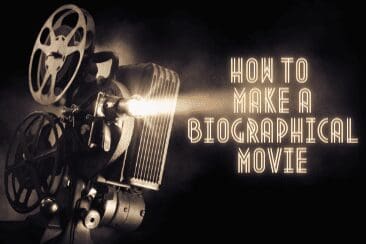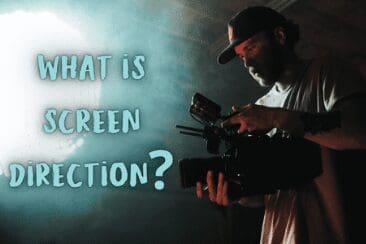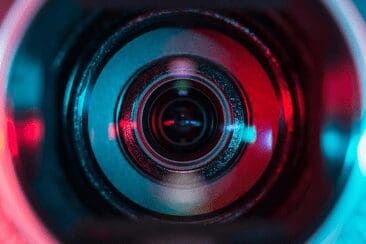Have you ever asked yourself, ‘what does a cinematographer do’? The cinematography of a film is an integral part of how it will be perceived by the audience, so it’s important to get it right. The cinematographer, or director of photography (DoP), is often one of the first people hired on a production. Directors will even sometimes hold off on shooting a project until their preferred DoP is available. So, what is the role of a cinematographer in a movie?
We’re going to dive in-depth into what a DoP actually does, how much they make, and how you can go about becoming one yourself.
What Is A Cinematographer?
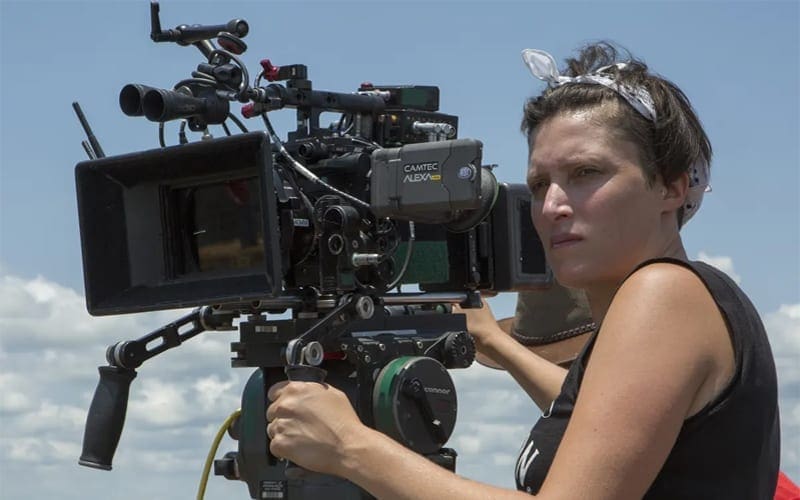
The DoP can be described as the director’s right-hand man or woman, but the two roles aren’t to be confused. They work across a variety of mediums, from music videos through to commercials and movies. They need to be good technicians, as well as being adept at managing large amounts of people. Most importantly, they need to be immensely creative, and able to collaborate with the director to best tell the story from a visual standpoint.
What Does A Cinematographer Do?
Pre-Production
Commonly, this is when the cinematographer is brought onto a movie. During this period they will work closely alongside the director to help craft the visual language, or ‘look’ of the movie. This will include breaking down the script from a creative standpoint, and deciding what camera, lenses, and lighting styles are most appropriate for the story. They will also discuss their approach to camera movement, scene coverage (what shots are required to piece a scene together in the edit), creating shot-lists and storyboards to help realise their plans.
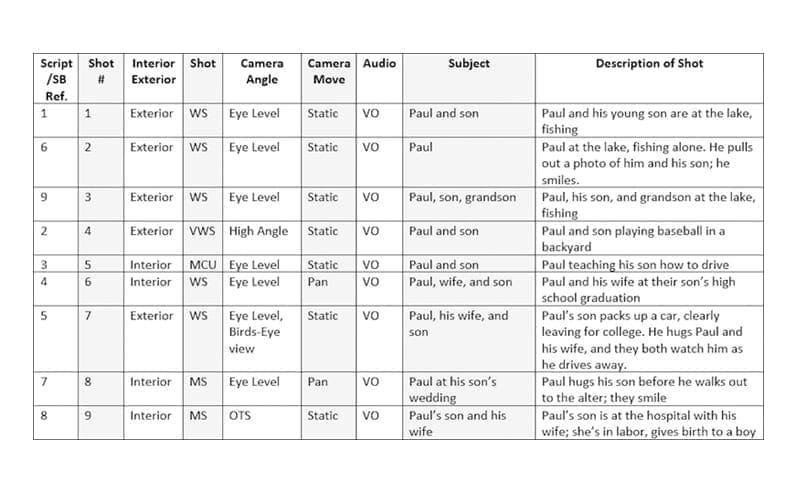
There are a number of technical, logistical, and financial factors that the cinematographer needs to consider. These include:
- Conducting camera, lighting, and lens tests to make sure that they’ll achieve the desired look
- Liaising with the line producer about the camera-department budget, and hiring all the necessary equipment
- Attending recce’s to see what’s physically possible at each location
- Giving input on the shooting schedule with regards to camera & lighting setup times
- Hiring heads of the grip and electric departments, as well as filling out the camera department
Production
Once pre-production is complete, it’s time to move onto physically shooting the movie. It’s now the DoP’s job to realise their and the director’s plans. A typical day on set may start out by watching the director rehearse the scene along with the actors. They will pay close attention to how the actors are moving through the location and where key bits of dialogue are delivered. Based on this rehearsal, the cinematographer can then work with the director to decide on scene coverage, camera placement, and lens selection. This will also allow the DoP to figure out exactly where they can place lighting fixtures.
The cinematographer will then direct the camera, lighting, and grip teams to set up and operate all of their equipment. During the take, many DoP’s will choose to operate the camera themselves. For more complicated shots, and shots that require specialist equipment such as a Steadicam, a dedicated camera operator will often be used.
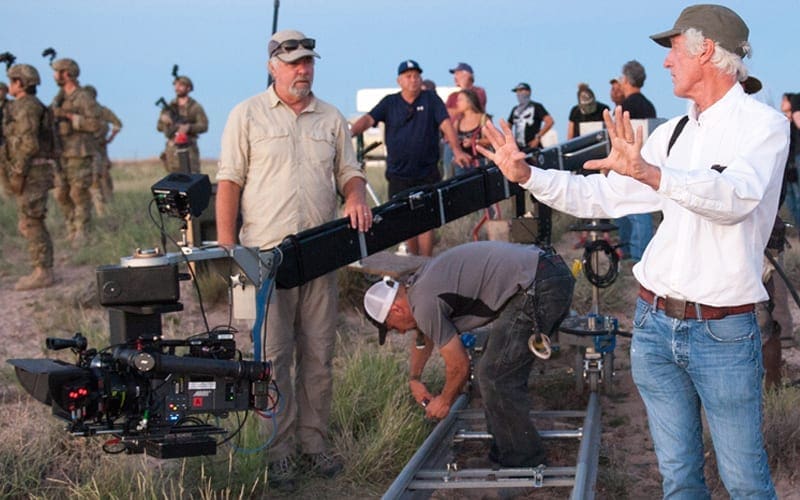
Post-Production
Just because the film has wrapped, doesn’t mean that the cinematographer’s job is complete. After the director has spent many months supervising the editing, sound design, and scoring of the film, it’s time for the cinematographer to come in and oversee one of the final steps. Colour grading. This process involves the DoP and director working closely with a colourist to put on the finishing visual touches. Almost everything about an image can be changed these days, such as exposure, contrast, sharpness, and colour balance. Even specific areas of the frame can be tweaked to perfection. The director and cinematographer will supervise this to make sure the final image is consistent with the original vision.
Cinematographer vs Director
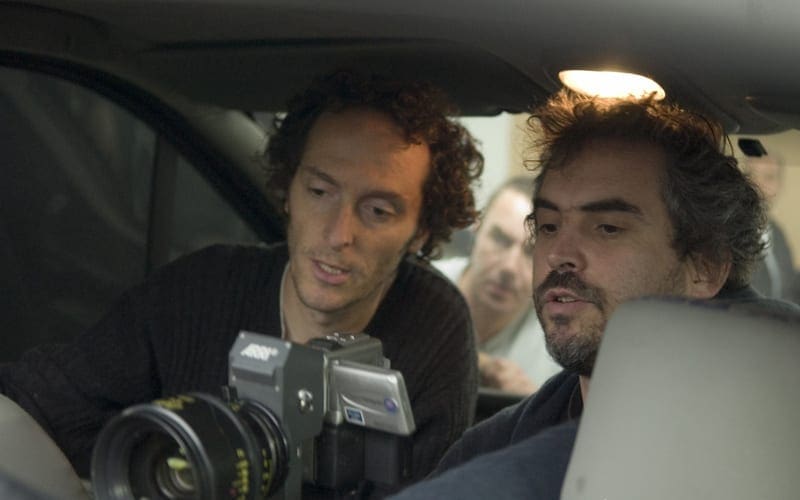
For aspiring filmmakers, the responsibilities of the cinematographer can sometimes get confused with the responsibilities of the director. This is understandable, as there are many parts where the two roles overlap. Many directors do have a deep understanding of the art of cinematography. Some notable directors have even acted as their own cinematographers, such as Paul Thomas Anderson (Phantom Thread), Steven Soderbergh (Ocean’s Eleven – Thirteen), and Alfonso Cuaron (Roma). When the two roles are separated, there are some key distinctions.
The main difference is that, although the director and DoP both have large amounts of input into how the film will look, it’s down to the DoP to actually make it happen. It’s their job to make sure the desired look is being achieved. For example, when approaching a scene, the pair will work together to decide on exactly how it should look. This will likely be from a more theoretical and big-picture standpoint. It’s then the DoP’s job to design the lighting setup and direct the lighting crew to make sure the look is achieved.
This gives the director the freedom to work with the actors and other department heads without being consumed by the nuts and bolts of lighting and capturing a scene. Another distinction is that the cinematographer won’t get involved with directing actors.
Cinematographer Salary
It’s always a little awkward to talk about money, but how much do cinematographers make? The term salary can be a touch misleading as almost all working DoP’s are freelance. Their fees will be worked out on a per-day or per-week basis.
The cinematographer’s fee can vary wildly depending on a variety of factors. These include; frequency of work, size and type of projects they work on and whether or not they have their own camera and lighting equipment. For example, cinematographers working on big-budget blockbusters could earn somewhere in the region of £750,000 for the entire project. However, inexperienced cinematographers may choose to work for free to help build their portfolio and networks.
I would never advocate working for free though. As a cinematographer, you’re in one of the strongest negotiating positions when dealing with the producer, especially if the director is keen to work with you. Below are what you could expect to make on different types of projects:
Low Budget Music Videos And Short Films: £0 – £400 Per Day
For these types of projects, it’s sadly quite common for crew to be paid little to nothing. This is often where budding cinematographers make their start. If the project is a music video, you should not be working for free, as it’s essentially advertising for the artist.
Branded Content: £400 – £800 Per Day
This is what you can expect to make on projects that brands might roll out online. The fees can be higher if the brand is well known or if it’s a large project.
Commercials And High-End Music Videos: £800 – £1200 Per Day
For commercials that are broadcast on TV, known as TVC’s and music videos for well-known artists, production companies follow a different pay scale. This is set out by the Advertising Producers Association (APA). Fees for these projects will usually fall into the above rates but can go much higher depending on the budget.
Low Budget Feature Films: £1000 – £1500 Per Week
Sadly for cinematographers working on independent features or features with a very low budget, their fees are nowhere near blockbuster levels. This is what they could expect to make on a feature film with very small budgets.
Large Feature Films And Commercials: £1200 – £3000+ Per Day
As a DoP gains experience and their reputation grows, they can begin to command higher fees on bigger budget projects.
How To Become A Cinematographer
If all of this sounds enticing, then you might be wondering how you actually go about becoming a cinematographer. Back in the day, the only way to become a DoP was to work your way up the camera-department ladder. This could have taken you 10-15 years as you ‘paid your dues’, and may never have come to fruition. Today there are other ways of becoming a cinematographer.
Studying cinematography at a film school, such as the UK’s National Film and TV School (NFTS), can be a great way to improve your cinematography. You receive excellent mentorship from working cinematographers, as well as having access to some of the best filmmaking equipment available. Going down the film school route can be hard though, as the best schools are incredibly competitive and only have a small number of places. There is also the financial side of things to consider. The cinematography masters course at NFTS, for example, currently costs £14,800 per year (at the time of writing).
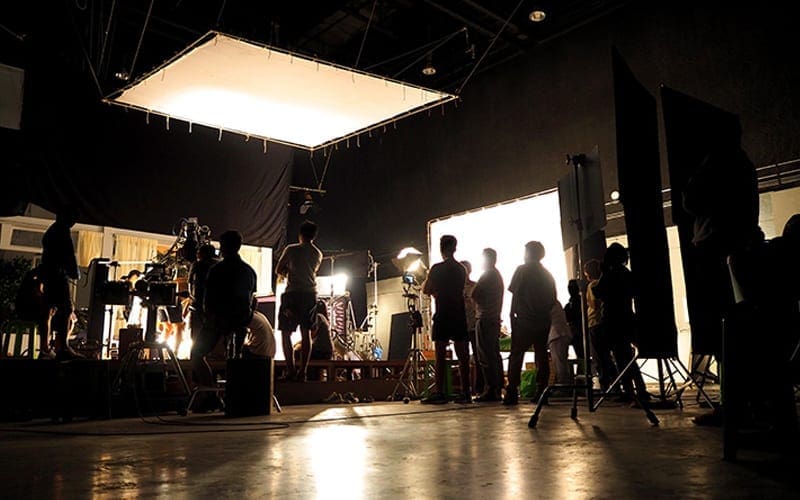
In this day and age, with all the resources we have access to, film school isn’t the only way to become a cinematographer. Many professional DoP’s start out by simply shooting their own projects, learning and gaining valuable experience as they go. This route can take years of work, but you’ll make connections with directors and producers along the way, who can hire and recommend you for bigger and bigger projects. Online filmmaking courses, such as Futurelearns’s ‘Explore Filmmaking’ (in conjunction with NFTS and BFI) can be a great (free!) way to get the ball rolling on your cinematography education.
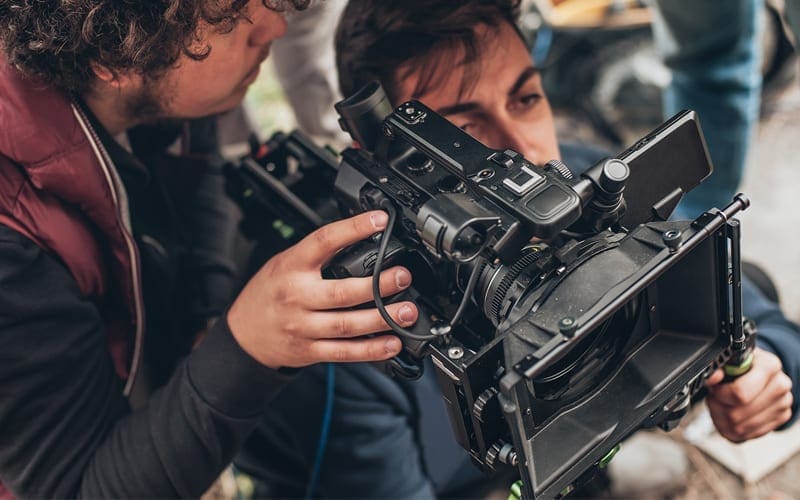
What Does A Cinematographer Do – You Have All The Answers!
The journey to becoming a successful cinematographer can be a long one, but the rewards can be huge when you get there. Armed with the information in this article, you’ll now be in a great position to tackle that journey head-on, and know exactly what to do when you sit down behind the camera for the first time. Time to get rolling!
Want to read more about cinematographers? See our top picks for the most famous cinematographers that you can get inspiration from!
Music Gateway – Opportunities
Would you like to get in touch with Music Gateway to see how we can help you? Then please use this link to get in touch with us to discuss any opportunities such as Sync Licensing, Music Licensing, Music Clearance, Sync Libraries or Music Libraries, etc., you may want to take further.
You can book a call with Sam – Head of Sync Licensing – as a potential lead. We are always happy to talk to musicians like you. Please do get in touch. Furthermore, if you are interested in the crossover between music and film, check out our article on music supervisors. With our concierge and service and extensive music library.






